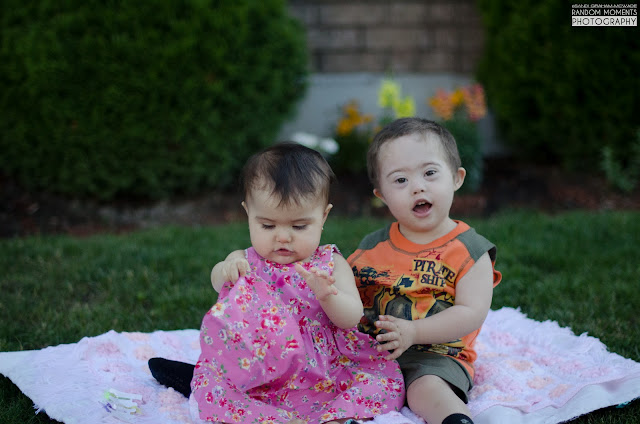My Journal - Week 45 (30Jun10)
Lessons and learning for everyone....
I came across a posted message on one of the support boards I frequent and I thought it was an important message that I needed to repost here in my blog. I modified and added some portions of the content as well as some information in the message. The original message that this post was meant to address remains primarily the reason I wanted to add it to my blog.
In this journey that John and I have have taken, there are many things we have learned on a personal level and much more that I realize is important to share and pass on so that others have the same opportunity to learn and understand.
I thought it might be helpful to give everyone some information about what language most of us who are parents of children with Down syndrome prefer to hear when referring to our kids. This is something most of you can carry with you if your child has Down syndrome or not. And if you didn't know the way we prefer it until now, please don't feel bad or worried if you wrote or have said something that wasn't the way it is written below - many of us did the same thing until someone told us!
Below are tips for the proper use of language for ‘Down syndrome’. The Canadian Down Syndrome Society, National Down syndrome Society and the National Down Syndrome Congress encourages the language below (there is also a link regarding language under my "Welcome to Our House" banner - How to talk about Down syndrome):
- Down vs. Down’s. CDSS, NDSS and NDSC use the preferred spelling, Down syndrome, rather than Down’s syndrome. While Down syndrome is listed in many dictionaries with both popular spellings (with or without an apostrophe s), the preferred usage in Canada and the United States is Down syndrome. This is because an “apostrophe s” denotes ownership or possession. Down syndrome is named for the English physician John Langdon Down, who characterized the condition, but did not have it. Also, the "s" in syndrome is not capitalized for the same reason.
- People with Down syndrome should always be referred to as people first. Instead of “a Down syndrome child,” it should be “a child with Down syndrome.” Also avoid “Down’s child” and describing the condition as “Down’s,” as in, “He has Down’s.” This seems like a minor distinction, but to many it is like the difference between someone telling you “that dress looks pretty on you.” vs. “you look pretty in that dress”. The first compliments the dress, the latter is a compliment to you. The originator of the post had also pointed out, "I really don't like hearing "she is downs" that makes me crazy, (would you ever say "she is cancer?" for a person who has cancer?)"
- Down syndrome is a condition or a syndrome, not a disease. People with Down syndrome can be perfectly healthy and do not need to be referred to as having a sick child.
- People “have” Down syndrome, they do not “suffer from” it and are not “afflicted by” it.
- Up until recently it was clinically acceptable to say “mental retardation,” but the term "retardation" is no longer acceptable and has been removed from all medical journals and literature. We currently use the more acceptable terms such as “cognitive delay/disability,” “cognitive impairment,” "intellectual delay/disability" or intellectual impairment."
Hunter has not only changed my life, he saved my life. I say this freely despite being a police officer, despite having a few family members with different special needs. Hunter is certainly one of those gifts I didn't even know I had ever wanted. Sometimes it's simply wonderful to embrace unknown gifts. I often hear, I couldn't do what you do. But the truth of the matter is, you don't know what you can do or what you are capable of doing until you do it. What I have also learned is, "choice" is often irrelevant.

Comments
Post a Comment